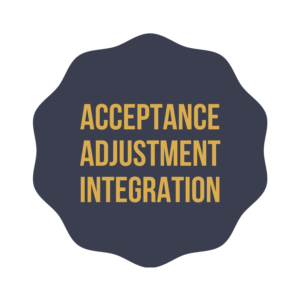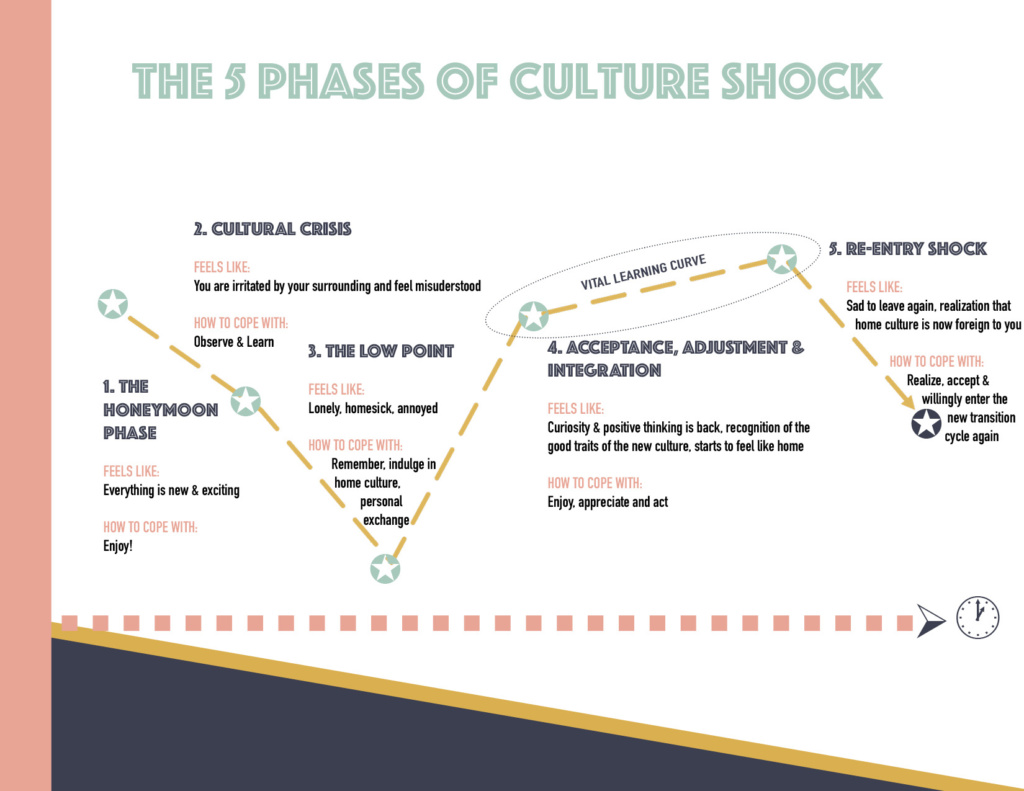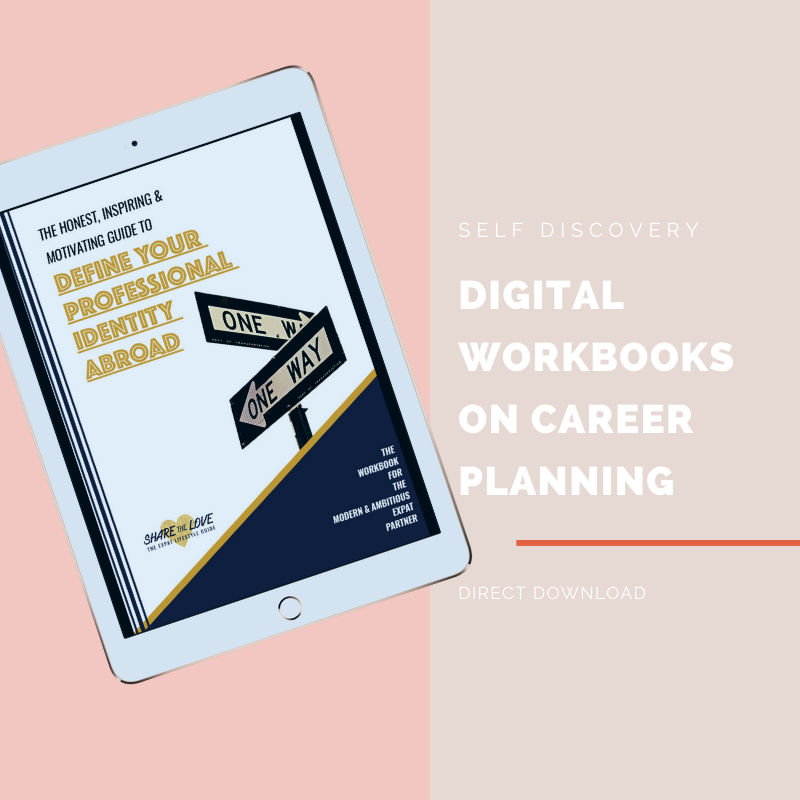
THE 5 PHASES OF CULTURE SHOCK
And how to go through smoothly
Culture shock is what you can expect when moving to another country. It does not matter if you move to a place similar to your own culture or you are changing continents. No matter the distance, you will still experience a cultural shock and the different phases it comes with.
The good news: Culture shock does not need to be something bad. In the best case, it’s just the transition you make when realizing that the new culture you are experiencing, is a bit more different than expected.
In a slightly trickier scenario, it will take you longer to get used to the new culture. It might be a bit more stressful to feel comfortable and home again. You will need more energy to acknowledge the unknown till you come to the conclusion that different does not by default mean bad.
THE MODULE OF 5 PHASES OF CULTURE SHOCK
When you do some research, you will come across so many different modules addressing the same issue: Transitioning to a new culture. The number of phases people refer to differs from page to page but there is common reasoning: You will go through ups and downs and although we are all individuals the sequence can be more or less anticipated.
How knowing about the 5 different phases of culture shock can help you
Knowing is key to acceptance and action. The very first time, I heard about the transition module during my Master’s degree in the UK. I just moved abroad from Germany and was in a very lucky position to study together with 18 other nationalities. Therefore, cultural integration was a huge topic right from the beginning and the logic of the 5 phases instantly stroke me and accompanied me throughout my time abroad.
Now, having moved to another country again, the module still comes in handy. I love that I can link my feelings to the phases, acknowledging where I am coming from and where I am at the moment. Also, if something is stressing you, there is always the positive outlook that this transition period will end someday. Sooner than later you will change countries again and will feel sorry to do so.
Let’s jump right in: The five different phases of cultural shock - how it feels and how to feel better
I designed a little graphic to show you the culture shock phases visually. You can easily download the graphic by clicking on it. If you want to know more details about symptoms and what to do, keep on reading.
PHASE 1: THE HONEYMOON PHASE
HOW IT FEELS
You literally just entered the country. Everything feels new. All your senses are on alert. Language, odors, gestures – everything seems just so beautifully foreign that you can’t do anything else than absorb everything with curious eyes.
Also, there are lots to do: Find a new place to live, check-out new means of transportation, orientate yourself within the new city, find a new employer, or master this new job abroad. Hence, there is no time to miss home or to feel grumpy.
The bucket list in your head seems endless and there are so many things ahead of you that you can’t wait to start.

My recommendation
Enjoy! Really, there is nothing else to do for you other than enjoying this magical time.
If there is one little recommendation I can give you: Start to write down your feelings. If you are experiencing a really rewarding day full of new impressions write it down. You might find it useful later on. Personally, I like to come back to my thoughts and feelings from the beginning when everything seemed to go smoothly. It can give you the necessary perspective and energy booster you might need in the future.

PHASE 2: CULTURE SHOCK
HOW IT FEELS
Now real life kicks in. You keep misunderstanding people around you. You have more and more difficulties in understanding small gestures and you keep running into the same situations where you don’t get what people want from you.
Everyday tasks like doctor appointments and shopping are more different than expected.
You start to feel uncomfortable and insecure.

Book a free discovery call
I am more than happy to support you in your journey. Let’s schedule a free discovery call, discuss your situation and see how we can turn it into a beautiful experience.
In case the time zone is not working for you just send me an email to info@sharethelove.blog and we will find a good time for both of us.
My recommendation
First, be forgiving towards yourself. Most people I met enter this phase quite early as they put too much pressure on themselves. Stop for a while and realize what you just have done: You said goodbye to friends and family and entered this big, new adventure of moving abroad and starting to live in a completely new environment. Of course, it will take time to feel at home again.
Second, keep learning. Try to learn as much as possible about the new culture and language to understand situations the right way.
Let me quickly give you a personal example. Simple, but groundbreaking learning for me: When people in the US leave the door open for you it is a nice gesture. When you say thank you, most Americans will do a special noise similar to ‘aha’ or ‘hmm’. In the beginning, I was very frustrated by this. Back in Germany, this reaction would be interpreted as rude because this sound signals annoyance. Then, I googled it and found out that this small sound has completely different meanings in the US and Germany and that it actually is the short version of: ‚Of course, you don’t have to thank me for that. It goes without saying that I will do that for you.‘ This was a moment of enlightenment to me. How many other different phrases and gestures do exist that I did not get? From that moment on I saw everything in a more positive light. So keep on reading and learning about the culture around you to start fitting in.
PHASE 3: THE LOW POINT
HOW IT FEELS
So, you may hit rock-bottom. Again, the intensity is different for everyone but this is most likely the time when you start to feel homesick, where the plans you made just did not work out. You are not able to find a job or the job you have just sucks. You have trouble finding new friends and the more negative experiences you have trying to become friends with locals the lonelier you will feel.
You will catch yourself explaining all the time to your friends back home what you don’t like about your new place and why your home culture is way better than this new culture. You keep saying that this or that is made better back home and you feel a growing aversion to local social behavior. In my example, while I felt it funny and interesting how differently waiters serve you in the US, I suddenly was really annoyed by the rush you are feeling when eating and the noise you are constantly surrounded with.
Second example: While I was amazed how many people offered me to grab a cup of coffee, I later realized that this is –at least in most cases- just a phrase and it will actually never happen. The next time I hear the phrase ‘Oh this was great, let’s grab a cup of coffee sometime” I left the meeting frustrated rather than motivated.
Within this period you might feel downcast or increasingly insecure about yourself. But keep your head up, there is something you can do about it.

My recommendation
Again, I really recommend you to write down your feelings. You also might go back to your notes taken earlier. If you are not a writer, talk to people around you who might be in a similar position. By analyzing your feelings you will do the first step to acknowledge where you are in the transition phases and you realize that what you are feeling at the moment is totally normal. Keep in mind that you are not the first person feeling like that – nor will you be the last.
During that time, I started treating myself with a little dose of my own culture. While it is aspirational, to adjust to the new culture it is sometimes necessary to treat yourself with a little bit of familiarity. In my case, I started to get in contact with other people from Germany to exchange my feelings. I kept on calling my friends and family back home and I also was lucky enough to welcome a dear friend here in Chicago. It was a pure cure for me to see her excitement about this country and city. Through her eyes, I was able to realize my lucky position again. And voila – crisis ended.

PHASE 4: ACCEPTANCE - ADJUSTMENT - INTEGRATION
HOW IT FEELS
Hello, adjustment period – I really like you. I guess that’s the phase I am in right now while writing this blog post.
My curiosity is back. I start to see the differences again in a more positive light. I am more interested in experiencing more of this foreign culture than hiding behind my own background. I have started to establish a local network. Every day I meet new, strong, and positive-minded people and I embrace this new life. Of course, there are still moody days but I guess it is to the same extent as living back home. But wait a minute. Where is this ‘home’ now? Might it be here as well? On the other side of the planet? It might just well be so.
You start to see that not everything is bad and that some characteristics of the new culture you are living in are actually really good and you might want to acknowledge that right now.

My recommendation
Again, similar to the honeymoon period: Enjoy. Use the new drive to realize projects in your mind and reach out to new people. Strengthen your social surrounding and keep on learning. Realize that bad days don’t have so much to do with these new surroundings but with your personal mood. In the best case, this period will go on for the longest.
Also, you might want to write down some parts of the new culture you really prefer to your own. Maybe there are some characteristics you might want to stick to also when you moved back or to another country.

PHASE 5: THE RE-ENTRY SHOCK
HOW IT FEELS
This phase is not mentioned by a lot of websites but I find it very important to know. As a lot of people reading this blog might find themselves on a temporary period abroad it is also crucial to consider what will happen when you move back – or more extreme – to another country.
While at the beginning of your adventure there are days where you can’t think of something bad about moving back one day this might change during your adjustment period. Now that you feel comfortable and you arranged everything the way you want to, moving back might seem a little sad. You have to say goodbye again and start this whole cycle again.

My recommendation
Acknowledge from the very beginning that this period might kick in. It will make all the phases before easier to digest. Feeling sad leaving again is the ultimate proof that you made yourself at home in the new culture – something you can be proud of.
By realizing your feelings during that phase you will also make it easier to adjust to the new country. However, it won’t make it go away – there is always a transition process to expect. No matter how often you have changed your country before it will happen again and again.
Conclusion
Thanks for sticking with me till the end. I hope you enjoyed reading this article and find it helpful during your time abroad. Let me know what you think in the comments below or send me a direct message through the messaging tool on the front page or via info@sharethelove.blog.
I find these different phases so interesting as I am going through myself every time I am moving abroad again. For me, knowing about that concept helps me to navigate through this cultural adventure. I hope you will feel the same.













Eine Antwort
Hi Kate,
I started following your Instagram shortly before I left the States to move to London with my husband. I loved the content you were putting out at the time and i had no idea there was an entire community of expat spouses who were going through the same struggles. But in all honesty, I didn’t think I would end up relating because I expected to find a job right away and immerse myself in a new culture openly and all would be well. I was sorely sorely mistaken and now, 5 weeks into our relocation, I am going from Phase 2 to phase 3 of the Culture Shock map you showed. I started blogging my first week moving here to London because I moved while I was very sick and in and out of the hospital. It took 2 weeks after moving here to recover and the blogging has helped share my new found honeymoon stage of London. But now the blog is not growing as fast as I would like, I’m not finding a job easily due to the season of the market, and I feel like I’ve seen everything I need to see here (which probably isn’t true).
I just wanted to thank you for sharing your experience! It’s helping me to realize where I am and what I need to do to get out of this rut.